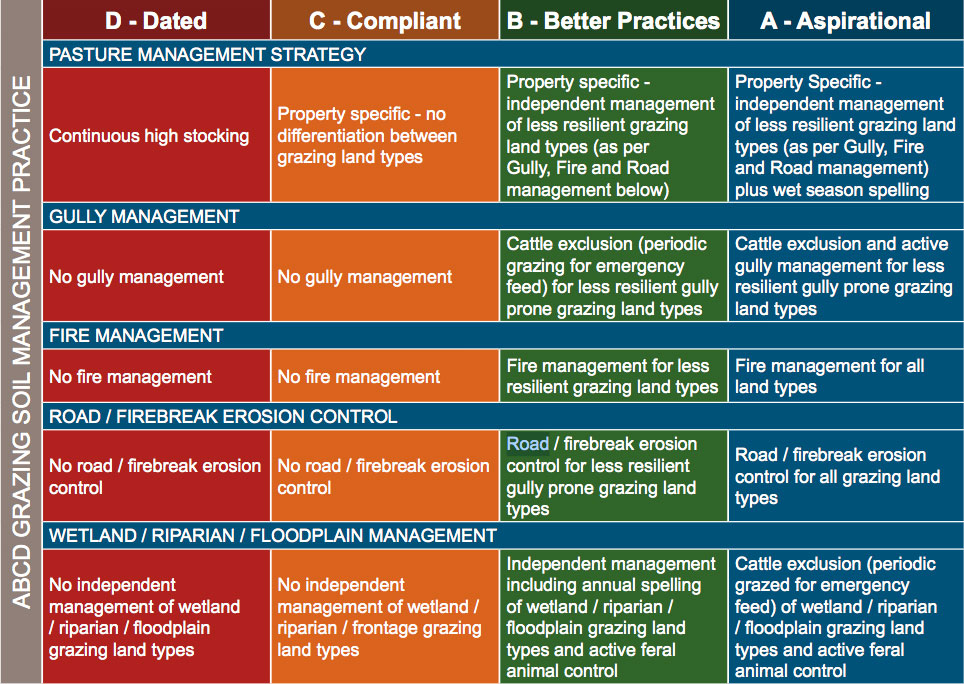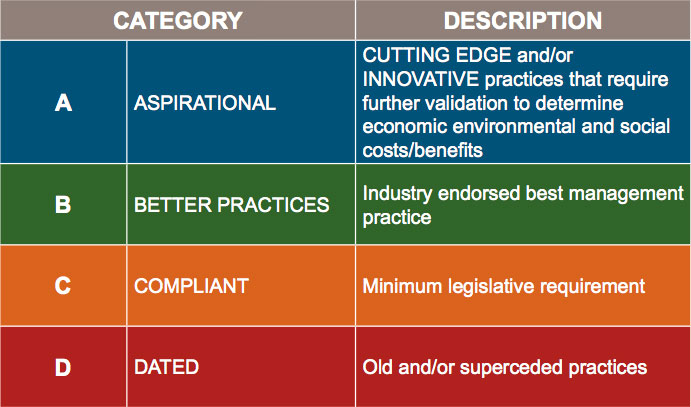A new grazing management practice framework for the Cape York region
A new grazing management practice framework for the Cape York region
A new grazing management framework for the Cape York region was developed as part of the Eastern Cape York Water Quality Improvement Plan. This new framework has been developed to better represent grazing management practices that are applicable in the Cape York Region.
The development of regionally specific management practice frameworks began over 10 years ago in the Mackay-Whitsunday, Burdekin, Wet Tropics and Fitzroy regions of Queensland. The development of a new grazing framework specifically for Cape York means that we can better represent local management practices rather than relying on generic Reef-wide frameworks.
The framework is intended to support rather than duplicate Grazing BMP (Best Management Practice) processes and as a result does not present an exhaustive list of management practices. The main grazing management practices that influence water quality (sediment) are represented.
The grazing management practice framework is broken into categories such as pasture management strategy, gully management, fire management, road / firebreak erosion control and wetland / riparian / floodplain management.
It can be used to support the development of property-specific action plans through benchmarking current management practices used within properties and identifying management practices that could be adopted in specific sections of properties to improve water quality. However, it is important to note that graziers have identified that there will be a need to adopt practices across several levels to successfully manage and operate their grazing enterprise on a year-to-year basis.
Cape York NRM will be working with graziers over the coming months and years to review and update the new grazing management practice framework to ensure:
- the wording of the descriptions match grazing industry terminology
- the practical actions required to move from one level of management to another level of management are defined, and
- the links between the level of practice and water quality (sediment) are validated.
What are ABCD Management Practice Frameworks?
The ABCD management practice framework was designed over 10 years ago to highlight and facilitate communication about the different levels or standards of management practice within the grazing industry that relate to different levels of water quality (sediment).
The ABCD management practice framework provides a definition (and pathway) of improvement from Dated to Better management practices, through to future Aspirational or ‘cutting edge’ practices.
It is important to specify the year of reference for any ABCD management practice framework. Over time, changes in knowledge, technology, costs and market conditions may validate cutting-edge Aspirational practices so they eventually become industry endorsed best management practices within an ABCD management practice framework.
The ABCD management practice framework provides a common reference point for communication with water quality researchers, social scientists, economists, industry research and extension organisations, and land managers on:
- the level of water quality improvement that can be achieved through improved management practices
- the social and economic costs and bene ts of adopting improved management practices
- the level of adoption of management practices required to achieve the Water Quality Targets
- the emphasis on the importance of detailed farm management planning and record keeping to achieving improved resource management, rather than a single technology or individual practice
- the type and scope of action such as Market Based Incentives (MBIs) required to achieve Water Quality Targets.


-
< prev
-
next >

